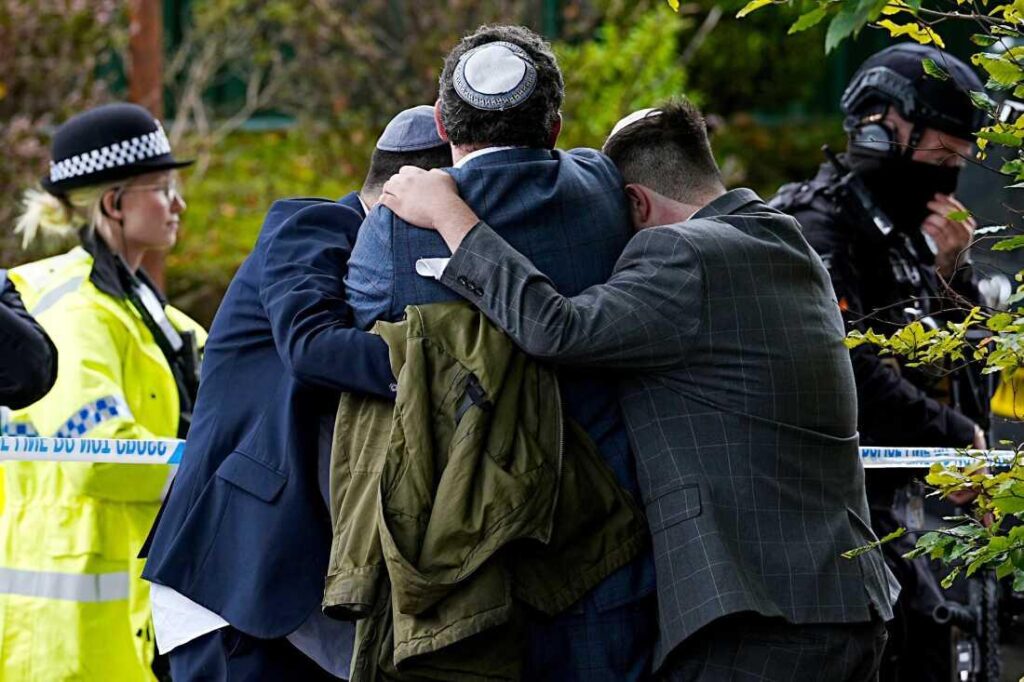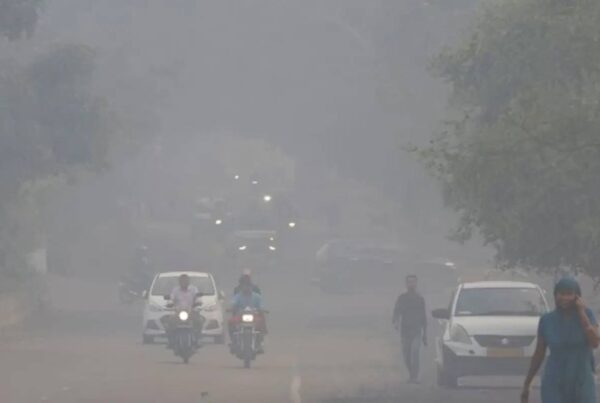A synagogue attack in Manchester shocked the United Kingdom on October 2, leaving three people dead, including the perpetrator, and injuring three others. The assault took place during Yom Kippur, one of the holiest days in Judaism, and has been officially classified as a terrorist incident targeting the Jewish community.
Authorities confirmed that worshippers were inside the synagogue when the attacker stormed the building, creating panic and chaos. Security forces responded quickly, but the incident ended with tragic loss of life. Local leaders condemned the attack, calling it an assault not only on the Jewish community but also on religious freedom and social harmony in Britain.
Heightened Fears in the Jewish Community
The attack immediately raised concerns about the safety of Jewish citizens in Manchester and across the UK. Community leaders urged the government to increase protection measures around synagogues, especially during religious observances.
Synagogue Attack During Yom Kippur
Yom Kippur, known as the Day of Atonement, is marked by fasting, prayer, and reflection. The timing of the assault was particularly painful, as the synagogue was filled with worshippers engaged in solemn rituals. Survivors described scenes of fear as congregants tried to escape or find shelter inside the prayer hall.
Authorities reported that two victims were worshippers while the third fatality was the attacker himself. Of the three injured, at least one remains in critical condition at a Manchester hospital. Police have not yet disclosed the identity of the assailant but confirmed they are investigating possible extremist links.
Security Concerns and Official Response
British Home Secretary pledged immediate support for Jewish communities, promising stronger policing around places of worship. The Community Security Trust, a group that provides safety assistance to Jewish institutions, deployed additional patrols in Manchester and other cities. Prime Minister also condemned the violence, calling it “a cowardly act of hatred against people of faith.”
Jewish leaders emphasized that while security is crucial, combating antisemitism at its root is equally important. “We need solidarity from all parts of society to ensure such hatred does not take deeper hold,” said the Chief Rabbi in a statement.

Broader Implications for the UK
The Manchester synagogue attack revived debates about terrorism and communal safety in Britain. It also highlighted the rise of targeted violence against religious minorities, a trend that has unsettled many across Europe.
Terrorism Classification and Investigation
Police officially designated the assault as an act of terrorism, focusing on the attacker’s motivation and potential links to extremist networks. Counterterrorism officers are now working with intelligence services to determine whether the assailant acted alone or with support.
Investigators are also analyzing the weapon used in the attack, which has not yet been publicly identified. While initial reports suggest a knife was involved, authorities are verifying the details through forensic analysis and eyewitness testimonies.
Reactions from Local and International Leaders
The Manchester mayor described the incident as a “dark day for the city,” while international leaders extended condolences to the victims’ families. Israel’s foreign ministry expressed deep sorrow and urged global action against antisemitism.
Human rights organizations noted that attacks on Jewish communities are not isolated events, pointing to recent threats and incidents in other parts of Europe. Analysts warn that lone-wolf attackers inspired by extremist ideologies remain a persistent challenge for law enforcement.
Protecting Places of Worship
In the aftermath, discussions intensified about how best to safeguard religious institutions in Britain. Synagogues, mosques, churches, and temples are all seen as potential soft targets.
Community Security and Preventive Measures
Local police are collaborating with synagogue officials to strengthen protective barriers and emergency protocols. Training sessions on evacuation and emergency response are being scheduled for congregants. Some experts argue for the introduction of new surveillance technologies, while others stress the importance of community-based vigilance.
The Jewish Community’s Resilience
Despite the fear and grief, Jewish leaders vowed to continue religious practices and not allow terrorism to silence their faith. Candlelight vigils were held in Manchester city center, attended by both Jewish and non-Jewish residents. Messages of solidarity flooded social media under hashtags like #StandWithManchester and #EndAntisemitism.
One survivor told local media: “They wanted us to be afraid, but we will not stop living our faith. We will mourn, we will heal, and we will stand together.”
The Manchester synagogue attack underscored both the vulnerability and the resilience of faith communities in the face of terror. While authorities intensify security and investigations continue, the victims’ families and the Jewish community remain at the heart of national mourning. Readers can follow more updates on international security and community responses on Olam News.




